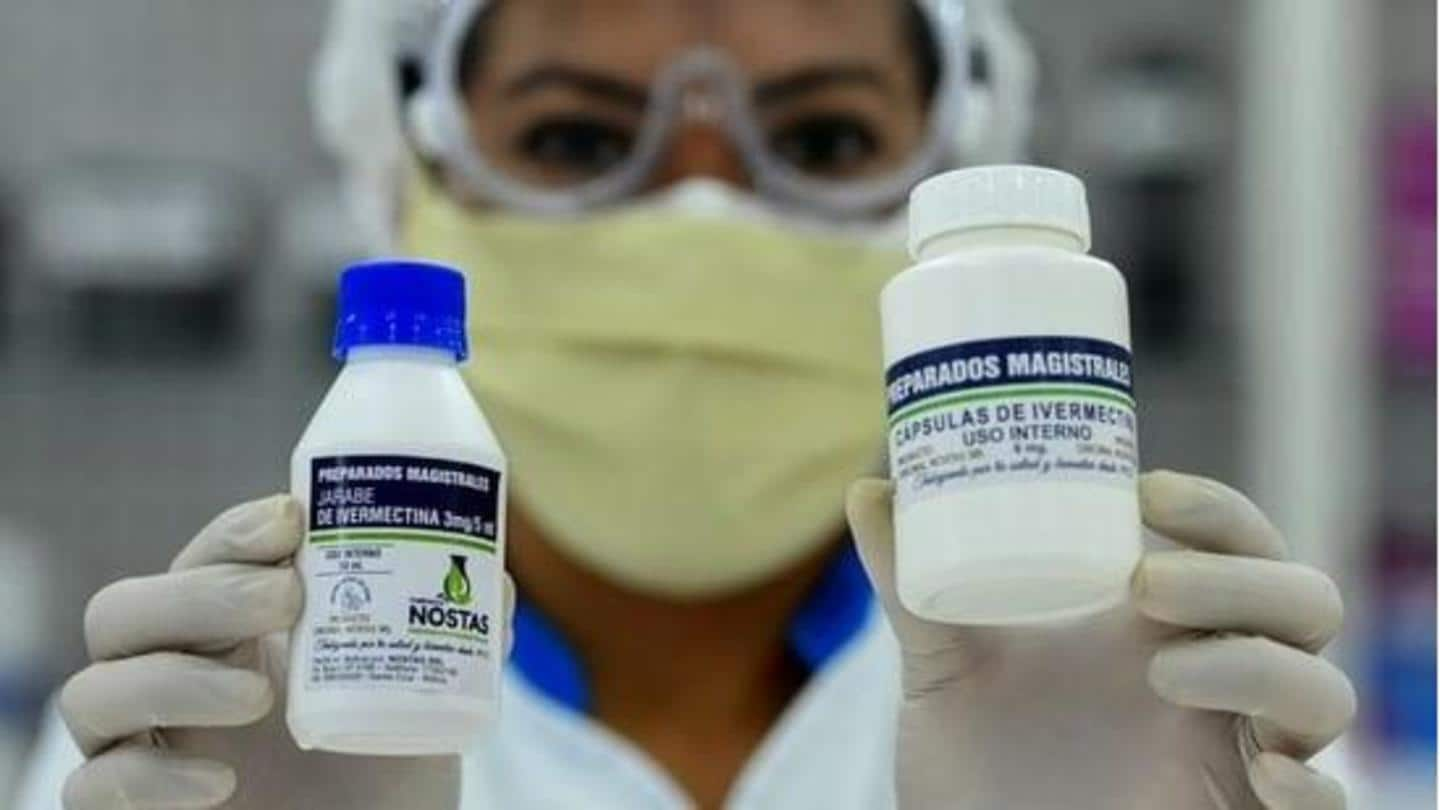
Despite WHO warning, all adults in Goa to receive Ivermectin
What's the story
Everyone above 18 years pf age in Goa will be given Ivermectin drug irrespective of their COVID-19 status, state Health Minister Vishwajit Rane said on Monday. However, the United States Food and Drug Administration (FDA) and the World Health Organization (WHO) have issued warnings against the drug's use. Last year, the central government had also left Ivermectin out of its Clinical Management Protocol.
Goa
Studies show Ivermectin helps reduce mortality: Health Minister
Rane said that all adults in Goa would receive the drug as a preventive measure. According to The Indian Express, he said, "There have been studies in the US, UK, Japan, Germany that when this (Ivermectin) is administered in advance when the entire population is administered this treatment, their mortality rate fell and effects of COVID-19 on that individual were also less (sic)."
Unanimous decision
Goa first state to administer drug to adult citizens: Rane
Rane said that patients will be given 12 mg of Ivermectin for five days. The minister also said that Goa would be the first state in the country to administer the drug to its adult citizens as a step toward protecting lives. "All our doctors, experts, and the Chief Minister unanimously decided to go ahead with this," Rane said, "It's a must."
Drug
What is Ivermectin?
According to the FDA, Ivermectin is a veterinary drug, often used in the US to treat or prevent parasites in animals. Ivermectin tablets are approved for some parasitic worms at very specific doses, and there are topical (on the skin) formulations for head lice and skin conditions such as rosacea. Last year, studies had suggested that Ivermectin could be used as prophylaxis for COVID-19.
Warning
Large quantities of drug can cause nausea, vomiting, diarrhea
In a warning last year, the FDA had recommended against using Ivermectin in COVID-19 treatment and said better and larger trials are needed to determine its effectiveness. It said consumption of large quantities of the drug could lead to nausea, vomiting, diarrhea, hypotension, dizziness, etc. The European Medicines Agency and the United States National Institutes of Health have also recommended not using it.
Protocol
Health Ministry had questioned lack of sufficient evidence on efficacy
Last year, the Union Health Ministry opted out from including Ivermectin in its official Clinical Management Protocol for COVID-19. The decision was reportedly taken "because of lack of sufficient evidence on its efficacy based on randomized trials held in India and abroad" at a meeting of the Centre's monitoring experts and the Indian Council of Medical Research's COVID-19 task force.
Inconclusive evidence
Ivermectin should be used only within clinical trials: WHO
The current evidence on the use of Ivermectin drug to treat COVID-19 patients is inconclusive, the World Health Organization noted in March. It recommended that until more data is available, the drug should only be used within clinical trials. The recommendation is a part of WHO's guidelines on COVID-19 treatment. WHO chief scientist Dr. Soumya Swaminathan reiterated the same in a tweet on Tuesday.
Twitter Post
Safety and efficacy are important, says WHO chief scientist
Safety and efficacy are important when using any drug for a new indication. @WHO recommends against the use of ivermectin for #COVID19 except within clinical trials https://t.co/dSbDiW5tCW
— Soumya Swaminathan (@doctorsoumya) May 10, 2021
Merck
Concerning lack of safety data in studies: Merck
Swaminathan referred to a press release by German healthcare company Merck, which said its scientists were still examining the findings of Ivermectin for COVID-19 treatment. Merck said its analysis has found no scientific basis for a potential therapeutic effect against COVID-19 from pre-clinical studies; no meaningful evidence for clinical activity/efficacy, and a concerning lack of safety data in the majority of studies.